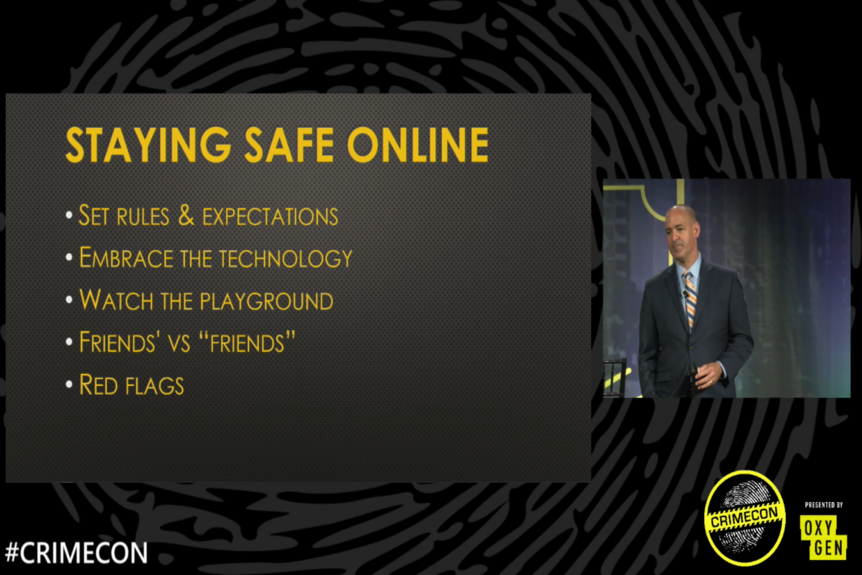Create a free profile to get unlimited access to exclusive videos, breaking news, sweepstakes, and more!
Tips On How To Keep Your Kids Safe Online, From Chris Hansen
David Frattare, a commander with Ohio's Internet Crimes Against Children Task Force, told CrimeCon 2021 that they received more tips than ever last year. Here's the advice he and Chris Hansen give parents to protect their children from online predators.

With the proliferation of cell phones and the rise of social media platforms like TikTok, Instagram, and Snapchat, kids are more online than ever. And while it might seem like a child predator wouldn't be lurking around on TikTok, Chris Hansen, famous for his "Dateline NBC" segment "To Catch A Predator," warned that's not the case.
"If your children are there, predators are there," he told the crowd at CrimeCon 2021, presented by Oxygen, in a panel entitled "To Catch A Predator: Stories, Stings And Safety In The Age Of Social Media." Along with David Frattare, a commander with Ohio's Internet Crimes Against Children Taskforce (ICAC), Hansen advised the audience on how to make sure children are being kept safe while online.
They had several tips for parents, first and foremost being to set some rules. Setting boundaries with your children around their social media use is crucial, they said, giving some examples like 1.) Don't accept friend requests from anyone you don't know, 2.) set hours for social media engagement, or 3.) Request access to their accounts.
It's especially important to teach children about the difference between friends and "friends" these days. Social media platforms encourage people to want to have as many followers as possible, so children do tend to accept friend requests from just about anybody to make their follower count and engagement rise, Hansen and Frattare said. Explain to them why that isn't safe, and why they need to only engage with people they know in real life when they're online.
What's also key, they said, is educating yourself about technology and social media. It might sound silly to make a TikTok account, but, they explained, that's how you can understand how your kids are communicating with other people and what kind of ways there are to engage on the platform. If you don't understand how the phone you gave them works, you won't know what exactly they're doing with it.
And of course, be on the lookout for red flags. Are they acting out of character or do they seem moody or secretive? Are they spending hours in their room on the computer? Are they acting cagey about their phone? Are they attempting to sneak out? Keep an eye on any unusual behaviors and make sure to communicate when you do.
However, they also stressed that they don't want people to become online vigilantes, seeking out predators and trying to bring them to justice themselves. Not only can that put someone in harm's way, it can also lead to suppression of evidence if it's not done correctly and ensure the suspect walks away free. If you have concerns, you should report them to authorities, they stressed.
During 2020, with the COVID-19 pandemic, Frattare's team received significantly more tips than any year before. If you'd like to report a potential crime, Frattare advised contacting National Center For Missing and Exploited Children's tipline or the Internet Crimes Against Children Taskforce's tipline.



























